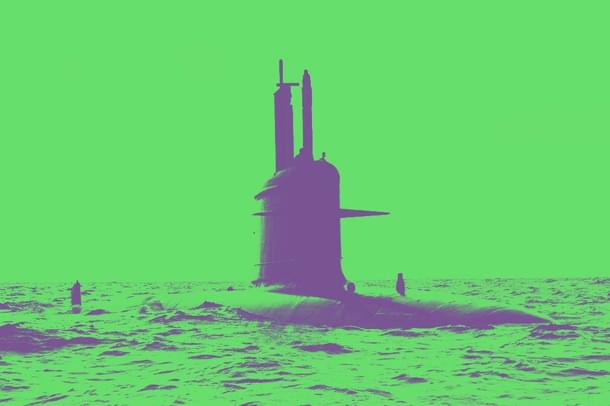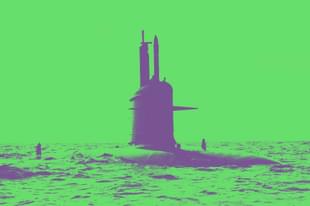Defence
Germany's Thyssenkrupp And India's Mazagon Dock Likely To Jointly Bid For $5.2 Billion Navy Submarine Project: Report
Swarajya Staff
Jun 06, 2023, 07:39 PM | Updated Jun 08, 2023, 10:50 AM IST
Save & read from anywhere!
Bookmark stories for easy access on any device or the Swarajya app.


Germany's Thyssenkrupp and Mazagon Dock Shipbuilders Limited from India are reportedly poised to form a partnership in a joint bid for a significant submarine construction project.
The estimated value of the project is $5.2 billion, and it entails the construction of six submarines for the Indian Navy.
Individuals with knowledge of the matter revealed that a preliminary agreement or memorandum of understanding is set to be signed during the visit of German Defense Minister Boris Pistorius, who arrived in New Delhi on Tuesday (6 June) for a two-day visit.
The bilateral pact is expected to be formalized in the presence of Minister Pistorius and various German and Indian officials.
Shedding light on the purpose of his visit, Pistorius emphasized his role in supporting and facilitating the negotiations between German executives accompanying him and their Indian counterparts.
In a recent interview with public broadcaster ARD, Pistorius expressed his anticipation for discussing the submarine deal during his visit to Mumbai on Wednesday. He acknowledged the significance of this contract not only for the German industry but also for the strategic partnership between India and Germany, deeming it both important and substantial.
To construct the diesel attack submarines, India has identified Mazagon Dock Shipbuilders and Larsen & Toubro as potential partners for collaboration with foreign defense majors.
Among the prime contenders for such a partnership is Thyssenkrupp Marine Systems, which holds a unique position as one of the two global submarine manufacturers equipped with air independent propulsion technology. This feature enables conventional submarines to remain submerged for extended periods, making Thyssenkrupp a compelling choice.
Furthermore, the Indian navy has previously utilized submarines manufactured by Thyssenkrupp, further enhancing the appeal of this potential collaboration in comparison to competitors such as South Korea's Daewoo and Spain's Navantia group.
The acquisition of submarines is of paramount importance to the Indian navy due to the aging state of its existing fleet. To effectively patrol the vast Indian Ocean, a minimum of 24 conventional submarines is deemed necessary, yet the current fleet comprises only 16 vessels. Apart from six recently constructed submarines, the remaining units are nearly three decades old and expected to be decommissioned in the coming years.





